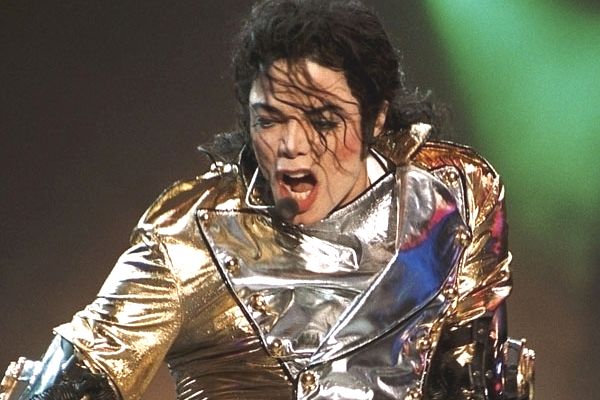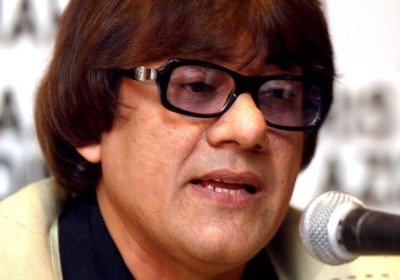Neither Malaysia’s opposition nor its upcoming mass anti-government protests will supplant Prime Minister Najib Razak before the next general election.
Longtime Malaysian leader Mahathir Mohamad’s new party will struggle to gain traction, but it may still tip the electoral balance.
Growing restlessness in Malaysia’s outlying states could expose new fault lines in the country’s long-established political order.
Analysis
As rumors circulate that Malaysia’s next general election may be moved up to early next year, the country’s next political showdown is beginning to take shape. Over the past two years, Malaysian Prime Minister Najib Razak has been implicated in a scandal in which he allegedly looted nearly a billion dollars from state investment fund 1MDB.
Najib is widely considered guilty at this point, and the scandal has sparked mass protests, purges in his ruling United Malays National Organization (UMNO) party and international scrutiny. But it has yet to seriously threaten him. Until the UMNO-led Barisan Nasional coalition sees the crisis as souring its electoral prospects, whether by alienating voters or by undermining the power of its patronage, the teflon prime minister will remain relatively secure in his position.
Still, for UMNO, which has ruled Malaysia every year since the country gained its independence, several challenges loom on the horizon. Combined with the country’s lingering economic woes and the continued 1MDB fallout, those challenges could expose new cracks in the political order and stability that have underpinned Malaysia’s rise to global prominence.
Staying Power
Despite his involvement in the 1MDB affair, Malaysia’s prime minister has managed to maintain his power over the country and the ruling party. As the scandal has unfolded, most UMNO members have closed ranks around Najib, and the party’s coalition partners have stayed put. Party members who have questioned the prime minister (including former Deputy Prime Minister Muhyiddin Yassin) or tried to investigate him (as Najib’s former attorney general did) have been purged and replaced with loyalists who absolve him of any wrongdoing. The fractured opposition, meanwhile, is simply too weak to oust him through a no-confidence vote — as it tried and failed to do a year ago. The corruption scandal has also had little effect on voters; Barisan Nasional coalition partners won each of the state and parliament by-elections held over the past year. The reason for its longevity is simple: Patronage remains the dominant tool of political power in Malaysia, and Najib’s administration controls the purse strings. A half-century of UMNO rule, moreover, has allowed the party to redraw political districts to its favor, something it is trying to do again in the electorally critical Selangor state.

Even so, if the scandal starts to hurt the ruling coalition’s electoral prospects, UMNO may be compelled to devise an exit for Najib before the next election to save him from prosecution and the party from an unprecedented defeat. The vote does not have to take place until late 2018, but over the past month, UMNO has reportedly intensified discussions on whether to call snap elections as soon as early 2017. Regardless, the possibility is accelerating realignments ahead of the next vote — among both the opposition and Barisan Nasional’s nervous coalition partners.
Enter Bersatu
The biggest complication for UMNO heading into the next election will be the newly formed Parti Pribumi Bersatu Malaysia, or Bersatu for short. Launched in August, Bersatu was established by longtime Malaysian leader and former Prime Minister Mahathir Mohamad, who also serves as the party’s chair. Muhyiddin is its president. The 91-year-old Mahathir has been trying to oust Najib, his former protege, for much of the past year, but his efforts have not gained much traction. His latest attempt to unseat UMNO is also unlikely to succeed on its own. Bersatu lacks the grassroots support and party machinery necessary to drive turnout, and Najib has been chipping away at Mahathir’s business interests, giving him less weight to throw around.
As part of an opposition alliance, however, the new party could play a decisive role in the next election. A similar opposition coalition nearly unseated Barisan Nasional in the 2013 general election and cost it the popular vote; Barisan Nasional retained a majority in parliament in that election mostly because of gerrymandering. During the week of Sept. 5, Mahathir was seen shaking hands with Anwar Ibrahim, a charismatic, reform-minded opposition leader. The incident was a boon for Bersatu, which found in Anwar an unlikely source of legitimacy — Mahathir ousted him in 1998 and then had him jailed on politically motivated charges.
By admitting only ethnic Malays into its membership, Bersatu has positioned itself as a natural landing place for Malay nationalist voters disenchanted with UMNO’s scandals but unsure of other opposition parties’ commitment to protecting their interests. UMNO’s stranglehold on the “Bumiputera” (the umbrella term for ethnic Malays and indigenous groups) vote is a perennial obstacle for the opposition. The party has long styled itself as safeguarding the interests of the Bumiputera against other ethnicities in Malaysia, stoking fears that the country’s economically powerful Chinese and Indian populations will try to do away with pro-Malay affirmative action policies. (Mahathir himself quietly sought to roll back some of the affirmative actions near the end of his term, to no avail.)
In the 2008 and 2013 general elections, opposition factions overcame their deep-seated differences and united behind
ethnic Malay figures such as Anwar to appeal to Malay voters. But Anwar has since been jailed again, and the alliance has largely collapsed amid infighting and ethnic rivalries. For instance, the Pan-Malaysian Islamic Party (PAS) — the opposition Islamist party dominant in northern peninsular Malaysia — severed ties with a former ally, the Democratic Action Party (DAP) in 2015 and has yet to commit to the new coalition, possibly positioning itself as kingmaker in the next general election. But considering that the opposition won the popular vote in 2013, Bersatu theoretically would not need to peel off much support from the ruling coalition to swing the next election. Bersatu’s best bet may be to focus on splitting the ethnic Malay vote in key races rather than on winning seats for itself, allowing other opposition parties to prevail.

First, however, the opposition parties will need to find a workable marriage of convenience. Though Anwar has tentatively endorsed Bersatu, the main opposition parties do not trust Mahathir. After all, he was the main architect of the system that has made it so difficult to dislodge Najib, and his own rise was fueled by exploiting Malay and indigenous fears of, for example, “the Chinese tsunami.” And several opposition leaders — from Anwar to members of the DAP — were jailed on politically motivated charges during his tenure. Even if Barisan Nasional does not call snap elections, the opposition has less than two years to find a way to cooperate and come to terms on sticking points such as seat allocations and conflicting policies. So far, they have not made much progress. The DAP has been reluctant to follow Anwar’s lead by accepting Mahathir’s olive branch, and the PAS (which itself is facing internal splits between Islamist hard-liners and a breakaway faction that supports the opposition alliance) remains a wildcard.
A Spotlight on the Scandal
Disorganized though it may be, the opposition will still benefit from the activities of Bersih, or the Coalition for Clean Elections, an activist group that is agitating for Najib’s ouster. Next month, the group plans to launch a nationwide roadshow to spread awareness of the 1MDB scandal in Barisan Nasional-controlled areas of Malaysia — an important endeavor given the government’s censorship of news related to the case. The roadshow will culminate in mass protests in Kuala Lumpur and other cities on Nov. 19. Although Bersih is not formally aligned with any of the opposition parties and is wary of Mahathir’s legacy, its efforts will serve the needs of the opposition, especially if elections are on the horizon.
Though protest turnout promises to be high — the last Bersih protest in 2015 drew some 300,000 participants over the course of 30 hours — the demonstration itself will not be designed to overthrow Najib. Mass protests in Malaysia are not typically the go-for-broke affairs seen, for example, in Thailand, where protesters occupy urban areas for prolonged periods of time to force a confrontation and delegitimize the government. Furthermore, any attempt to lock down Kuala Lumpur would spark ethnically tinged counter-protests that would raise the risk of violence. (Last year’s UMNO-funded counter-rallies, for instance, took on a noticeable anti-Chinese bent, and police narrowly prevented party supporters from storming a prominent ethnic Chinese business district in the capital.) The opposition does not want to validate fears among ethnic Malays that UMNO’s defeat would throw off the
tenuous ethnic balance that the party’s rule has
helped preserve. Instead, with the upcoming elections in mind, the protest organizers will aim primarily to put the focus of the next race squarely on the 1MDB affair and turn the vote into a referendum on Najib himself. The more it succeeds, the less the opposition’s internal fractures will matter.
Cracks at the Fringes
Along with its other political concerns, Najib’s government has to contend with growing restlessness in the country’s outlying, semi-autonomous states.
Lacking geographical or ethnic coherence, Malaysia’s solidarity has long relied on shrewd, inclusive policymaking and plentiful resource wealth to grease any friction. The farther from the capital one gets, the more important the
flows of revenue and patronage from the government become — whether in the form of large-scale infrastructure projects, extraction licenses or cash transfers.
But over the past eight years, several outlying states have increasingly tried to take advantage of Barisan Nasional’s weaknesses to push for a greater devolution of powers from the capital. Sarawak, for example, has been pressing Kuala Lumpur for more authority and oil revenues. In addition, protests erupted in that state and neighboring Sabah — both of which were critical to Barisan Nasional’s victory in the 2013 election — in September, demanding greater autonomy and a referendum on their status in Malaysia. Meanwhile, the crown prince of wealthy Johor state has suggested that the state may consider leaving the federation — as its southern neighbor, Singapore, did in 1963 — if the central government does not honor agreements on issues such as water and land rights. And the PAS, based in the northern Kelantan state, has been flirting with supporting Barisan Nasional in exchange for considering a bill to increase the power of regional Sharia courts, a move that threatens to spark ethnic backlash on both sides of the aisle.
At this point, none of these nascent movements presages upheaval that would threaten the integrity of the Malay Federation, or even major defections away from Barisan Nasional. Johor’s secession threats are particularly hollow,
and Barisan Nasional’s dominance in an April state election in Sarawak demonstrated that local issues will play as great a role in the next election as will turbulence in the capital. Still, the trend reveals the lines along which the UMNO-led political order could begin to crack in the face of prolonged political uncertainty
— particularly if persistent economic problems and
low oil prices pinch patronage flows — with or without Najib.
– www.stratfor.com






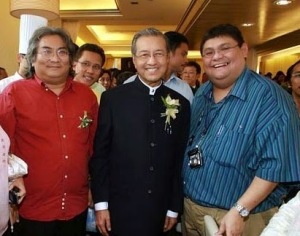

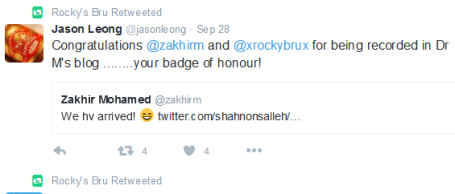

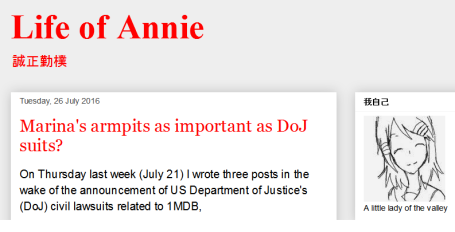
 KUALA LUMPUR: A prime minister can be removed only through established convention or a court judgement, says former attorney-general Abu Talib Othman in disagreement with a lawyer representing former PM Mahathir Mohamad.
KUALA LUMPUR: A prime minister can be removed only through established convention or a court judgement, says former attorney-general Abu Talib Othman in disagreement with a lawyer representing former PM Mahathir Mohamad.
